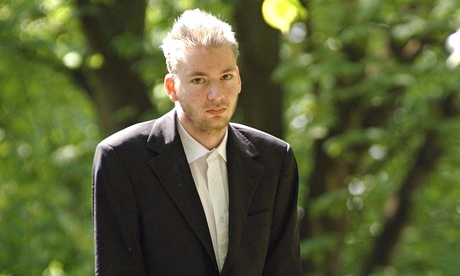
It was one of the more curious – and most haunting – true-life stories of the last decade. Dripping wet, traumatised and silent, a young man washed up on the British coast apparently unable to communicate except via the keys of a piano. The case prompted a global search and a storm of media interest before the piano man, as he was nicknamed, faded back into obscurity.
Ten years on, the spotlight will be back on this mysterious stranger after a London theatre company decided to put on a play based on the saga. The piece, called The Piano Man, will retell the story, reconsider the theories that abounded at the time – and give the tale a grand, romantic ending.
Director Sam Carrack said the story had lived with him since he read about it in the Guardian and Times back in his student days.
“I followed it closely at the time. It was such a magical story, one of those that you can’t get out your mind. And then it all just disappeared. I’ve always wanted to know what happened next.”
The director and cast have spoken to psychologists, mental health nurses and police to try to find out more what the man may have gone through but have decided not to try to track down the piano man himself.
Daniel Hallissey has the tricky job of playing the elusive character, and has learned to play the piano from scratch for the role. He said: “For me the story is a lot about the loneliness we all experience in the modern world and our struggle for identity. Finding out who we are is so difficult in these times.”
The man appeared on a coastal road on the Isle of Sheppey in Kent in May 2005, smartly dressed but soaking. He was unable or unwilling to speak and ended up in hospital. There he was given a piece of paper and pencil and sketched a grand piano. The man was taken to a piano in the hospital chapel, and sat down and played.
According to some reports of the time he played so beautifully staff believed he must have been a professional musician, performing sections from Tchaikovsky’s Swan Lake and what appeared to be his own compositions.
The story was picked up around the world and international television crews arrived on a bemused Isle of Sheppey to retrace the man’s soggy footsteps.
Police and missing people charities launched a global search for his identity.
In August 2005 the piano man suddenly spoke and revealed that he was a German citizen called Andreas Grassl. He returned to his family’s farm in Bavaria, with a press pack in hot pursuit.
Grassl was still not speaking, at least to the media. It was left to his lawyer to explain it was actually a simple and sad story – the 20-year-old had suffered a mental breakdown while doing casual work in France and had caught a ferry to the UK and a train to Kent. But he could not remember how he came to be soaking on Sheppey. And, though he learned to play a small keyboard, he was no brilliant musician.
The play, by the AllthePigs theatre company, will run at the New Diorama Theatre in central London next month before touring nationally. It tells the story but also look at the rumours, claims and counter-claims that swirled around it.
Carrack said he was fascinated by the wild suggestions about who the piano man was. “I loved the story of the Polish mime artist who went to police and said he was a French busker and the one that had him as a drummer from a Czech rock band.” Both the busker and drummer were found at the time and ruled out. Carrack was also delighted by the story of the Danish politician who came forward to wrongly suggest the piano man was her husband. “All that is just extraordinary.”
The production will also look at how he was dealt with by the media – and how some turned on him after he spoke. The Mirror, for example, ran the headline “Piano man sham” when his identity was finally revealed. The Guardian’s headline was “Back on the farm – the piano man who can’t really play”.
Carrack has tentatively tried to find out what happened to Grassl afterwards and believes he is now living in Switzerland and working as a teacher. But there has been no book from Grassl, and no interviews. The company thought it best to let him be and weave what is known about him into their own version of the story. It also allowed them to create their own ending, which is much more dramatic than the reality.
“We thought long and hard about contacting Andreas to see if he would co-operate. We decided not to,” said Carrack.
Of course, the play may lead to a fresh search for the real-life piano man. Carrack said he hoped it did not lead to unwanted intrusion. “I would feel responsible if that happened. I hope his privacy is respected.” And if he comes to see the play? “He would be welcome. I hope he likes it.”
The Piano Man, 11-15 November, New Diorama Theatre

